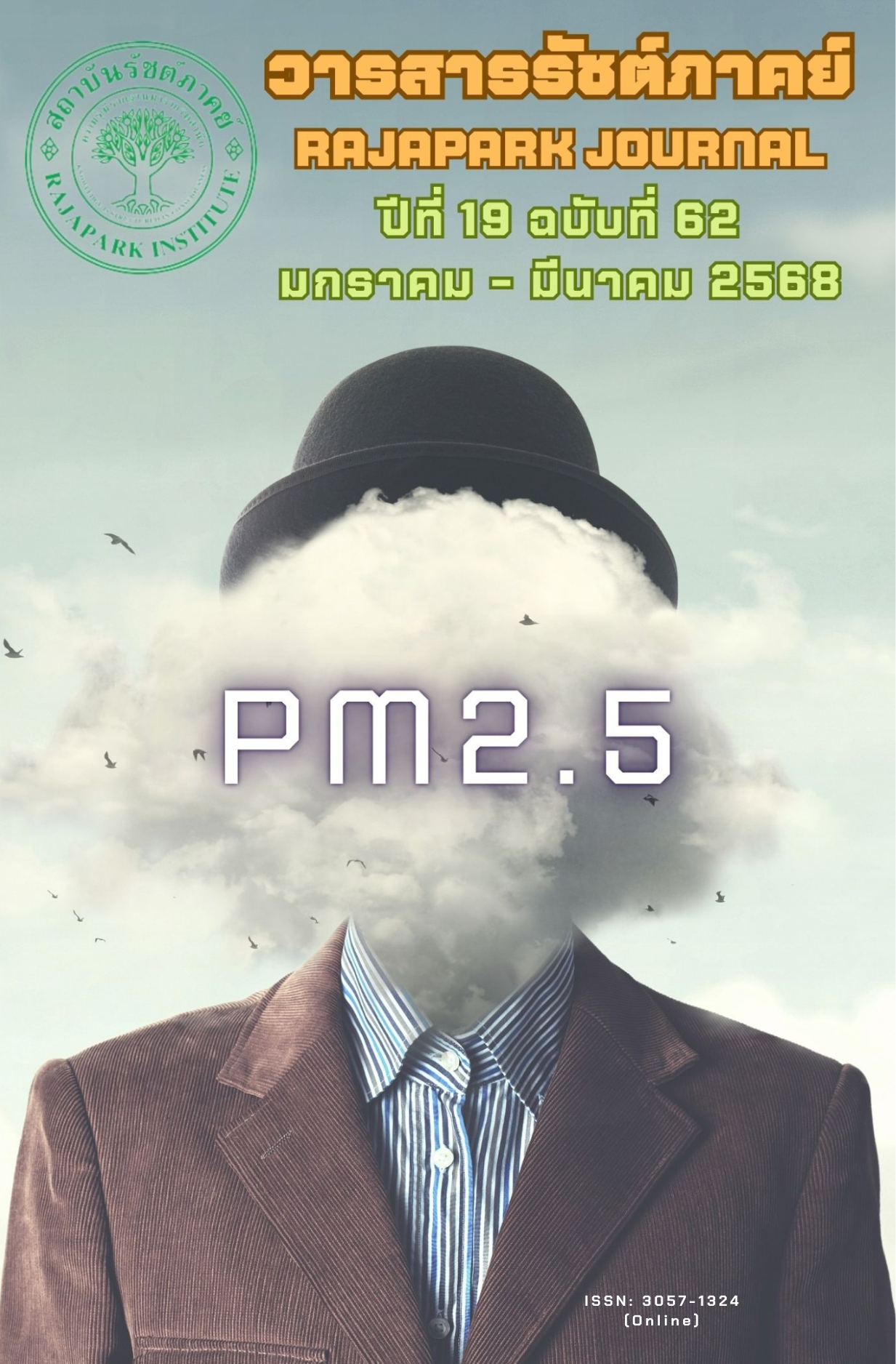Factors Influencing the Scholarly Creative Output of Research Personnel in Faculties in the Discipline of Arts and Humanities, Social Sciences and Management, and Multidisciplinary Studies
Main Article Content
Abstract
This research is institutional research with the main objectives of examining and analyzing. 1) the performance results according to the strategy under the “International Publication” indicator of the higher education institution as a case study. 2) the factors that influence the research creation of research personnel. The scope includes the fields within the arts and humanities, social sciences and management, and multidisciplinary studies. The data is gathered through a questionnaire of research personnel. Such a questionnaire was developed using a rigorous process based on theoretical foundations and consensus from research personnel. Its reliability has been confirmed by experts through IOC, with an average high coefficient of 0.94. The data is also gathered by in-depth interviews of executives driving, supervising, and monitoring research policies. Data analysis uses descriptive statistics and inferential statistics. The research results show that 1) Half of the research personnel do not have completed research work, and most of them conduct research alone, with 1-2 research works in process per person. The primary source of funding comes from the faculty’s income budget. Most research is published in national journals. Additionally, most of the international journals are published in the Scopus database. 2) Factors that influence research creation include personal, motivational, and research-facilitating factors, which have a high level of influence. 3) The top 5 factors influencing research creation are career advancement, attitude toward research, support for the publication of research papers at the national and international levels, the nature of academic work responsibility, and respect acknowledged. 4) The main obstacles to research creation include insufficient time due to a heavy teaching load, lack of knowledge and experience, the process of research funding applications and ethics approval is not flexible, and a lack of networks for international collaboration.
Article Details

This work is licensed under a Creative Commons Attribution-NonCommercial-NoDerivatives 4.0 International License.
Views and opinions appearing in the Journal it is the responsibility of the author of the article, and does not constitute the view and responsibility of the editorial team.
References
Blocher, E. J. (2010). Cost management: a strategic emphasis (5th ed.). McGraw Hill.
Bullen, C.V., & Rockart, J.F. (1981). A primer on critical success factors. Massachusetts Institute of Technology, Sloan School of Management, Massachusetts, USA.
Chuchuan, W. (1991). Research in secondary school teachers, department of general education[Master’s thesis, Chulalongkorn University].
Hirankit, P. (2001). A study of problems and research needs of civil servants under the supervision of Ramkhamhaeng University. Research and Development Institute, Ramkhamhaeng University.
Hiranwong, A. (2004). Causal factors of research productivity of vocational educators in higher education[Doctoral dissertation, Kasetsart University].
Manmin, P. (2020). Factors affecting the success of the National Action Plan on Business and Human Rights Phase 1 (2019-2022)[Master’s thesis, Thammasat University].
Ministry of Higher Education, Science, Research and Innovation. (2020). Higher Education, Science, Research and Innovation Policy and Strategy 2020-2027 and Science, Research and Innovation Plan 2020-2022. https://www.mhesi.go.th/index.php/ stg-policy/930-2563-2570
Nipkanon, K. (2019). A study of success factors and obstacles underlying education sector's support towards the sustainable growth of Thailand’s Innovation-Driven Enterprises on Digital Platform[Master’s thesis, Mahidol University].
Panich, V. (1997). Research management: concept from experience. King Mongkut's University of Technology.
Pingsanoi, W., & Prontadavit, N. (2014). Factors influencing the research of academic staff in health sciences at Thammasat University. Thammasat Medical Journal, 14(3), 387-396. https://he02.tci-thaijo.org/index.php/tmj/article/view/21809
Plianphu, P. (1997). Education psychology. Faculty of Industrial Education and Technology, King Mongkut's University of Technology Thonburi.
Poompho, R. (2023). Thai higher education and a new step to world university rankings. Journal of Development Management Research, 13(3), 872.
Punmanee, A. (1999). Psychology for learning and teaching. Love is Love Press.
Somnam, N., & Teekasap, S. (2008). The motivation in creating academic works among lecturers in private universities within cooperation group of western Bangkok and metropolitan region. In The 1st Thonburi Academic Conference, Bangkok.
Thairath online. (2023). What are the best universities in Thailand measured by? Get to know the QS World University Rankings. https://www.thairath.co.th/lifestyle/life/2705904
Thavorn, A. (2002). Motivation for research of lecturers at King Mongkut's Institute of Technology Ladkrabang[Master’s thesis, King Mongkut's Institute of Technology Ladkrabang].
Vacharaviwat, A. (2001). Developing a curriculum to strengthen research competencies for nursing students[Doctoral dissertation, Srinakharinwirot University].
Wattansin, P., & Decharin, P. (2002). Strategic management and business policy (4th ed.). Chulalongkorn University Press.
Wianglek, K. (2010). Factors influencing the self-concept of classroom research among teachers under the office of the educational service area in the upper norteastern region[Master’s thesis, Mahasarakham University].
Wichaiphanich, C. (2011). Factors affecting research of lecturers in Rajamangala University of Technology Thanyaburi[Master's thesis, Rajamangala University of Technology Thanyaburi].


